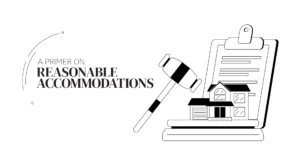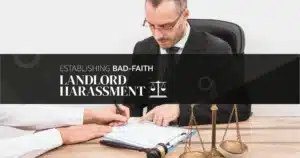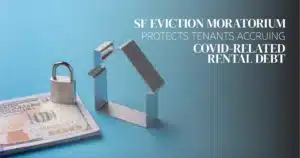If you have ever faced eviction, you understand just how stressful it can be. Losing your home, sense of stability, and your savings can be too much, all at once.
To make matters worse, California laws regarding housing and eviction are quite complex. For the untrained eye, reading eviction laws can feel like you’re walking through a maze.
But you are not alone.
Understanding your rights is the first step to protecting yourself from unfair eviction. The next step is to hire someone who knows how to fight eviction in California.
If you are ready to reclaim control and take these challenges head-on, we have put together a step-by-step guide to fight eviction in 2025 in California.
Understanding Eviction in California
In the current housing market, eviction can feel like a dark cloud hanging over your head. You may have seen your neighbours or friends get evicted. And you’re worried you might be next.
But there are things you can do to prepare yourself.
The most important thing you can do is educate yourself on the legal process. Understanding eviction, the rules, and protections that exist is half the battle.
What is Eviction?
Eviction is when the landlord uses legal measures to remove a tenant from their rental property. In California, the process is called ‘unlawful detainer’. The landlord can evict the tenant, but only if they follow certain legal steps.
The most important thing is to provide a proper notice.
Common Reasons for Eviction
There are many reasons why landlords might want to evict their tenants. California recognizes legal reasons as ‘just causes’.
These include:
-
Non-Payment of Rent
If the tenant fails to pay rent on time, the landlord can begin the eviction process. The landlord can also provide some relief if the tenant is facing financial hardship and communicates this before it becomes an issue.
-
Violation of Lease Terms
If the tenant violates lease terms such as ‘unauthorized subletting’ or ‘causes damage to the property,’ this is considered a just cause. The landlord can identify these violations in their lease agreement, and by signing it, you agree to comply with them.
-
Nuisance or Illegal Activity
If the tenant is found engaging in illegal behavior, such as prostitution or disturbing neighbors by playing loud music at odd hours, it can result in eviction.
No-Fault Reasons
There are also certain cases when the landlord can evict tenants for ‘no-fault reasons’.
-
Owner Move-in
If the owner wishes to move into their property, they can ask the tenant to move out.
-
Withdrawal of Property
This is often referred to as the ‘Ellis Act,’ which means the landlord wishes to remove the property from the rental market.
-
Substantial Renovation
If the landlord wants to renovate the property and it might take a long time to complete, they may ask the tenants to vacate the property.
-
Compliance with Government Orders
In some cases, a government agency can ask the tenants to vacate for health and safety reasons. The landlord receives these orders and has to comply by starting the eviction process.
In case of no-fault evictions, the tenants can ask for relocation assistance. If you have lived in the unit for a long time, are a senior citizen, or a special-needs individual, you have the right to such compensation.
How to Fight Eviction in California (and Win!)
Tenants can resist eviction, even if the landlord has a ‘just cause for eviction’ under the following circumstances:
-
Improper Notice
If the landlord did not provide the tenants enough time to vacate, i.e., a legal notice, the eviction process cannot be started.
-
Retaliatory Eviction
Say you complained to your landlord about unsafe living conditions and exercised your legal right by requesting certain changes. Next thing you know, your landlord is serving you an eviction notice. This counts as a retaliatory eviction, and you can resist it.
-
Discriminatory Eviction
If the tenant faces eviction based on discrimination, California law considers this illegal.
-
Implied Warranty of Habitability
The tenant can contest the eviction if the landlord hasn’t maintained the property in a livable condition.
How to Delay an Eviction in California
If you haven’t received an eviction notice yet, you are in luck. But if you have received it, fret not. There are steps you can take to delay it.
-
Respond to the Notice
California law protects tenants by giving them a timeframe to respond to notices. In legal terms, this is called an ‘Answer’.
As of 2025, you have 10 business days (previously 5) to respond to an unlawful detainer notice. You can use this time to consult an attorney regarding extensions or to prepare a defense.
-
Request a Stay of Execution
This is a legal request that you can use if the court has ruled in favor of the landlord. It helps you to postpone the eviction for a specific period of time.
If the eviction notice blindsided you, this gives you more time to find a new place.
-
Exploring Mediation Services
Sometimes the best way to resolve an issue is through a third party, not the court. Mediation services help to facilitate a conversation between you and your landlord.
Whether you need an extension to pay rent or other accommodations, mediation can help you and your landlord reach a mutually agreeable solution.
And yes, this is as legally significant as a decision made in court.
Mediation is a good option if you want to preserve a good working relationship with your landlord.
-
Seek Legal Assistance
Eviction laws can be complex, and depending on your circumstances, seeking legal assistance can be the smartest move. So, do your research and explore your options.
Are you looking for something low-cost, like legal aid services in California, or a law firm dedicated to fighting for tenants’ rights?
-
Understanding Local Ordinances
Local ordinances can provide additional protections for tenants. This includes rent-control laws, just-cause eviction requirements, and extended notice periods.
Your attorney can help you explore these options and find resources that could delay your eviction.
Your Checklist for Fighting Unlawful Detainer
-
Have you responded to the eviction notice?
If you don’t want to lose the case, you should respond to the unlawful detainer within the given timeframe. This means you get a hearing, and you have a fighting chance.
-
Did the landlord provide improper notice?
If the landlord failed to follow the correct procedure in serving you an eviction notice, you can use this as a defense.
-
Was this a retaliatory eviction?
You can contest the eviction if you prove that the landlord is discriminating against you.
-
Did the landlord violate your rights by failing to maintain habitable conditions?
You can raise the Implied Warranty of Habitability in court to contest the eviction.
-
Do you wish to seek legal assistance?
You might be wondering how you can use these defenses in court. Which one best fits your circumstances, and what counts as evidence?
This process is overwhelming, and you need an experienced attorney who specializes in tenants’ rights. Hiring a law firm not only increases your chances of a successful outcome.
Reach out to Law Firm for Tenants’ Rights today, so you don’t have to navigate this alone.
Frequently Asked Questions
1. What is an eviction in California?
Eviction or “unlawful detainer” is the legal process of removing a tenant from the rental property.
2. What are common reasons landlords file for eviction?
Some of the common reasons why tenants get evicted include non-payment of rent, lease violations, or illegal activity.
3. Can I delay an eviction in California?
Yes, tenants can delay evictions by requesting more time in court or using mediation services to come to a mutually agreeable solution.
4. What are common eviction defenses that tenants can use?
Some of the most common eviction defenses include improper notice, retaliatory eviction, and discrimination.
5. What is a retaliatory eviction?
A retaliatory eviction is when a landlord removes a tenant for exercising their legal rights.
6. How do unlawful detainer cases work in California?
First, a landlord files to evict a tenant, and the tenant can contest it by responding to the notice with proper defenses and evidence.
7. Can mediation help with eviction disputes?
Yes, you can use mediation services to reach a mutually agreeable solution outside of court that is legally binding.
8. How long do I have to respond to an eviction notice?
You have 10 business days to respond to the notice by filing an ‘Answer’.
9. Do I need an attorney to fight eviction?
Yes, you can fight eviction cases without an attorney, but hiring one can significantly increase your chances of success.
10. Are there local protections that can help tenants?
Yes, California provides additional protections to tenants such as rent control, extended notice periods, and just-cause eviction requirements.





